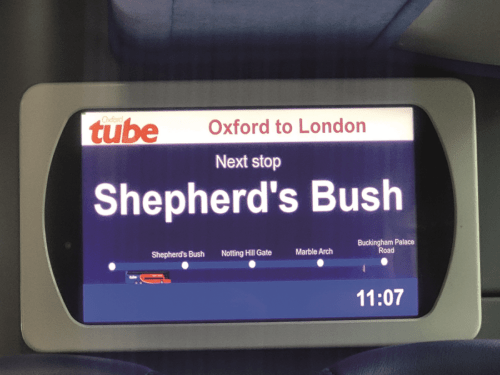
The industry will be supported in the initial phase of the implementation through a £4.65 million fund for small operators to upgrade vehicles to meet the new legislation
Disabled passengers across Great Britain will be able to travel more confidently thanks to new laws that will boost accessibility for everyone, the Government says. On Tuesday 30 March, the Department for Transport introduced new rules that will require almost every local bus or coach service to provide audible announcements and visual displays identifying the route and direction, each upcoming stop, and the beginning of any diversions.
To help smaller operators meet the cost of implementing the new requirements, the Government is to provide £4.65 million in funding. The changes will be implemented gradually, with almost all vehicles required to comply by October 2026.
At present, there is patchy provision across the country, with around 30% of buses outside London providing the required information already, something which is increasingly acknowledged as a barrier for disabled people wanting to travel by coach or bus. The introduction of audible and visual information will also benefit non-disabled people, such as by helping those who are travelling on an unfamiliar route, and giving passengers confidence that they will not be left stranded at the wrong stop in the dark.
Roads and Accessibility Minister Richard Holden said: “Everyone deserves to take the bus with confidence, and this is a massive boost for passenger independence. Simple and effective audible and visible information should be a baked-in feature of a modern bus service to help people reach their destination, wherever they travel in Great Britain. To ensure the information provides real-life benefits, the Department for Transport has worked closely with disabled passengers, user groups and the bus and coach sector, whilst giving operators the flexibility to choose solutions suitable for their services.
“The aids will include ensuring audio is available through induction loop systems, and all new vehicles introduced after October 2024 must also include visible information which can be seen by a wheelchair user when travelling in a rearward facing wheelchair space.”
Chief Executive of the charity Guide Dogs Tom Wright said: “For so many people, buses are key to opening opportunities to get out independently: to go out to work, get to appointments, and to see friends. But for many people with sight loss, bus travel can prove difficult or near impossible.
“At Guide Dogs, we are delighted that the Government has taken this significant step in making bus travel more accessible to people with a visual impairment. Our research shows that over half of people with sight loss have missed their stop due to a lack of information, and many people avoid bus travel altogether because buses remain inaccessible. The announcement, and the financial support behind it, will open up opportunities for people with sight loss to live independently.”

